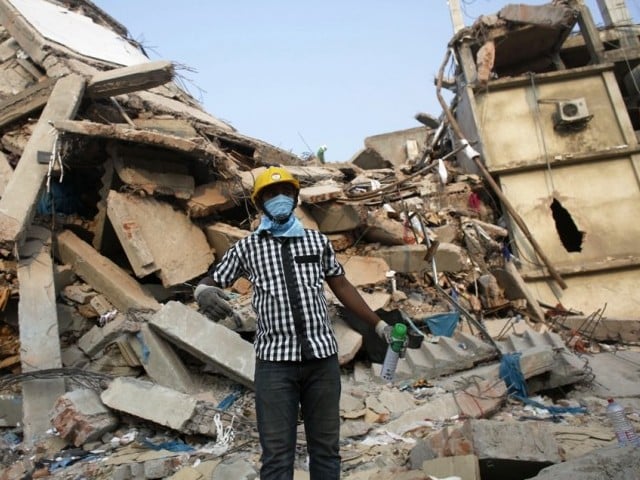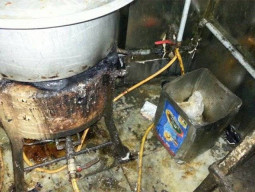
The lives of people living in Karachi are at severe risk. Neither does the government have a contingency plan, nor does it have the resources to deal with a disaster. In the case of any catastrophe, Karachi may suffer more losses than the entire region, warned panelists and participants during a roundtable meeting at the South Asian Cities Conference on Saturday.
The event, which was moderated by Dr Sarosh Lodhi, the dean of the Faculty of Civil Engineering and Architecture, NED University, was attended by architects, disaster management experts, students and government representatives.
During the debate the participants focused on available resources with the government, drafting policies, contingency plans, capacity buildings of people and institutions and governments to make people disaster resilient.
“All the rivers and drain storms are encroached on and choked. What can the administration do in case rains flood Karachi? There will be no other option, but the city will sink,” said Dr Lodhi.
Roshan Ali Shaikh, the secretary for rehabilitation at the government of Sindh, said that there was no integrated policy and different agencies, including Defence Housing Authority, the cantonment boards, the district government, the provincial disaster management authority and the Karachi Port Trust do not coordinate or cooperate with each other.

“The writ of the government and political will is needed. What can a fire tender do when it gets stuck and finds no way to extinguish a fire in narrow streets? In some areas rescue workers cannot approach it because of encroachments and other issues,” he said, while referring to Saddar’s downtown historic Empress Market.
He acknowledged that there was no serious work going on to build contingency plans to mitigate an emergency. “The earthquake hit Japan with intensity a few years ago. More than 28,000 people lost their lives in Turkey and only 12 people were injured in Oslo. The minimum loss in Oslo can be taken a example of best planning,” he said. “We have a building control authority, but hardly any building is being constructed according to the bylaws. This all is possible, but it needs political will.”
Save lives on roads
As government representatives were making hollow promises to make more policies, a few concerned citizens started demanding they save the lives of people on the roads.
“We don’t need to hear promises being made by the government that it will draft more laws and policies. You just make sure you save the lives of people on the roads,” one of the participants asked.
The director-general for the Rescue 1122 service, Dr Rizwan Naseer, said that the traffic congestion is a problem of developing countries, including Pakistan, which need to be tackled on a war footing. “Around 518 billion dollars in losses are estimated in road-related incidents and around 90 per cent of incidents occur in developing countries,” he said.
Dr Naseer diverted the attention of the audience toward policies saying that it was now a provincial government’s responsibility to make the law and implement it. The government of Punjab has a law under which capacity building and disaster training will be started at the city, town and village levels.
Published in The Express Tribune, January 12th, 2014.
COMMENTS (1)
Comments are moderated and generally will be posted if they are on-topic and not abusive.
For more information, please see our Comments FAQ



1732623521-0/bitcoin-(1)1732623521-0-165x106.webp)













We are a hoard of animals... Will move-on to other lands for grazing after dipleeting and destroying one. Life; isthe least important thing we have... Dont you see every day?